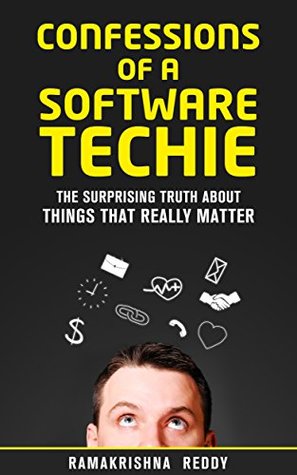More on this book
Kindle Notes & Highlights
As a techie in the corporate world, however, I feel honesty is not always the best policy. I am not telling you to be dishonest. I am just telling you that being honest in its purest form in today’s complex work culture might get you into trouble.
You show integrity when you say that things will be done and you get them done, whether someone is watching you or not.
You beg, fight, or barter, but if you can keep your word, people will love working with you.
A little success is enough to create ego. If you are not yet there, it will eventually happen. Once we become fluent with something, we run a high risk of becoming arrogant.
I have found that instead of building ego, building rapport creates a win-win situation.
Nobody is obligated to bend to your ego. But, they’ll bend if you have built a rapport. It just helps like crazy.
If folks are happy doing the same job, for the same employer, for the rest of their life, thinking that they are building loyalty with the employer, it’s time to think again.
What matters is how much money you can earn or save for your employer, how you can deliver quality products and services with less expense, and how much work you can complete with minimum resources.
I’m a hot-shot guy slogging for hours and hours”—about ourselves, what matters is how others think—“he seems to be a loser who is not able to complete work in allotted time”—about
The only thing that matters is your performance. That’s it. Not just in the technology world, but also in areas such as politics, it’s performance that matters.
Performance is the only thing that matters at work. Performance does not have a past or future; it is the present. You build connections through performance.
Good bosses will not micromanage. Instead, a good boss will give you autonomy, which is one of the three drivers that motivate employees.
the most common reason for micromanagement is lack of trust.
When a problem arises, whether technical or business, understanding the big picture and narrowing down the scope of the issue is what matters.
Extrovert and introvert are states at the extreme ends of a scale. And we fluctuate somewhere between those states, based on people—colleagues, friends, relatives—and situations such as no pressure, high pressure, or a friendly atmosphere.
If people are really good at what they are doing, leave them alone. Seriously, just because you must oversee their work or are supposed to keep track of them, don’t nag them. It doesn’t matter if you have the title of manager or a lead or whatever, leave the good ones alone. For some slow learners, if you trust them and instill a sense of ownership, people deliver.
“Just because you do not take an interest in politics doesn’t mean politics won’t take an interest in you.”
“work expands so as to fill the time available for its completion,” which is also known as Parkinson’s Law.(1) The law describes that a task will continue to swell in importance and complexity according to the time allotted to complete the task. Work becomes like the universe, and it keeps expanding and expanding to fit the time. We end up doing less with more, whereas what we want is more with less.
The Pareto rule (also well known as the 80/20 rule) states that 80 percent of effects come from 20 percent of causes. Have you observed that only 20 percent of the people in a team are responsible for 80 percent of the results? Have you observed that only 20 percent of your friends support you 80 percent of the time? Do you wear only 20 percent of your clothes 80 percent of the time? The fraction might not be exactly 80/20. However, the essence is true—causes and effects are not directly proportional.


